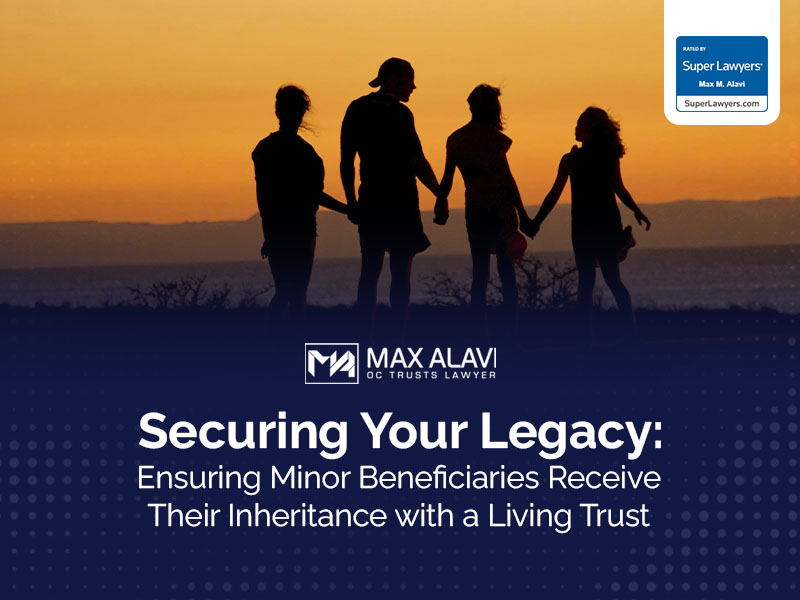Those with IRAs or similarly tax-deferred plans often wonder whether they should transfer ownership of their plan to a living trust. What are the merits of doing this? And does it typically make more sense to name a spouse, child, or grandchild as the beneficiary of the IRA? In a new blog post, Max Alavi, APC, OC Trusts Lawyer, provides some insight. Check out the full post below.
Can I Transfer My IRA and Other Tax-Deferred Plans to My Living Trust?
It often makes more sense to name the living trust as the beneficiary, though even here, we advise carefully considering all the available options. These might include your spouse, kids, grandkids, charities, trusts, or any combination above. The beneficiary you name for these tax-deferred plans will determine the growth that can continue when you die.
It’s common for spouses to name each other as the beneficiaries of their IRA. This is because the money in the account will be available to support the surviving spouse when their partner dies. Also, spousal rollover options can facilitate many more years of tax-deferred growth. (What does this mean? Simply put, when you die, your spouse may roll over your IRA into a tax-deferred account of their own and then name a new beneficiary… usually a child or grandchild.) Note that non-spouse beneficiaries can also be named to inherit and roll over the IRA, though they may not name additional beneficiaries.
There are a few important reasons why you might decide to name your trust as the beneficiary of your IRA, but the main one is maintaining control over how your assets are used. When you name your living trust as the beneficiary, it means that upon your death, the distributions will be paid not to an individual but to the trust itself, which will be governed by your written instructions regarding who receives the money and when. You may set up your distributions to reflect the life expectancy of the trust’s oldest beneficiary or even set up multiple trusts for each beneficiary so that each individual’s life expectancy might be used.
Talk with a Living Trust Lawyer
The rules regarding living trusts and IRAs can be complex, so it’s always important to talk with an experienced attorney. Max Alavi APC, OC Trusts Lawyer, has a rich history of helping clients navigate these complexities. His exemplary Google reviews attest to a high level of expertise and professionalism, to say nothing of his ability to get results on his client’s behalf. Schedule your consultation with Max Alavi APC, OC Trusts Lawyer, today.






